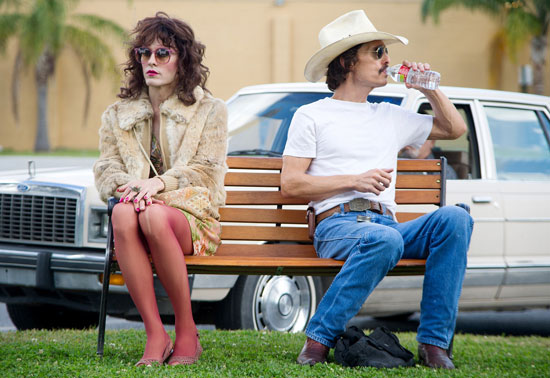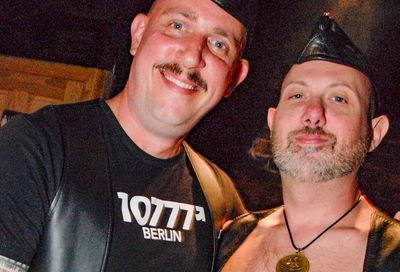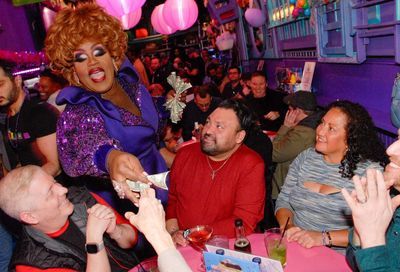Survival Instinct
Commerce meets compassion in ''Dallas Buyers Club,'' the story of one man's fight to stay alive and make a profit
The American dream, more than whatever else, is a longing for health and wealth. We want to live and make good livings. So, naturally, the people who embody those basic ambitions fascinate us. The beautiful actors. The savvy business leaders. The impossible athletes. Anybody named “Kennedy.” If you’re lively and flush with cash, you’re almost certainly an object of affection to somebody in America.
Ron Woodruff was not like those people. Dallas Buyers Club, a fictionalized recount of Woodruff’s life as a gray-market medicine man at the heights of the AIDS crisis, makes clear he was plagued by his own casual bigotry, promiscuity, alcoholism and drug use. If modern icons are constructed of vitality and stock portfolios, Woodruff was their equal and opposite: a man determined to live on the fringe of society, in spite of his AIDS diagnosis.

Dallas Buyers Club
(Photo by Anne Marie)
Director Jean-Marc Vallée introduces Woodruff between the slats of a Texas rodeo pen. He’s fooling around with two women, while mere feet away from their coked-up ménage à trois, a cowboy grabs ahold of a bull and tries to ride it to submission. (Metaphor alert!) Yes, this is a bona fide McConaughey performance, all flirty bravado and good ole boy charisma — not unlike Dazed and Confused‘s David Wooderson, a second cousin to this gaunt sleaze ball. McConaughey lost some 40 pounds for this role, but it’s not his scrawniness alone that stands out. His skin is loose and worn, as if he’s spent decades mainlining Marlboro Reds and Jack Daniels. He is an ill man.
Woodruff’s life seems a blue-collar bacchanalia — a whirlwind of girls, booze, drugs and gambling — until a workplace accident lands him in the hospital, where a routine blood test reveals that he has “full-blown AIDS.” An impassive doctor (Denis O’Hare) tells Woodruff he has 30 days to live. Woodruff tells him to go fuck himself, then leaves the hospital.
From there, Dallas Buyers Club stretches beyond the tropes it invokes to explain how Woodruff outlived that death sentence. After finally conceding he has AIDS, Woodruff meticulously researches the disease. (The old fashioned way, in a library.) He learns about the then-experimental drug AZT, and after a misguided attempt to buy it from the goodly Dr. Eve Saks (Jennifer Garner), bribes a hospital janitor to steal it for him. When the AZT hurts more than it helps — it’s repeatedly described as “poison” — Woodruff smuggles a trunkful of unregulated drugs across the border from Mexico. He partners up with a tragic transgender woman – as described by actor Jared Leto, who plays the part – named Rayon, opens up a hush-hush medicine service in a motel, and – Voila! – the Dallas Buyers Club is born.
So, how exactly do you take a homophobe who believes he can’t have a “faggot disease,” and turn him into a sympathetic, life-saving protagonist? A bit of honesty, and a bit of showmanship, and one supremely talented actor. Screenwriters Craig Borten and Melissa Wallack suggest that Woodruff’s bigotry was a soft product of his environment, a card-tower easily toppled and replaced. As he warms up to Rayon, the two develop a rapport that wouldn’t be out of place in The Honeymooners. They tease each other like an old married couple, nagging and joking in a warm, familiar way. The best moments in Dallas Buyers Club are Woodruff’s scenes with Rayon, if only because they soften his remarkable transformation from bigot to hero.
That’s not to say it’s all peachy, though. Borten and Wallack seem to have an endless supply of animosity for AZT, which even today can be helpful in smaller doses. They simplify Woodruff’s story into a tale of a man against the medical-pharmaceutical giants, which ignores the complicated, organized assault against the health care industry during the AIDS crisis. (For a much, much better account of the same period, watch David France’s moving documentary How to Survive a Plague.) It’s inspiring to watch a man fight for his own life, but Dallas Buyers Club won’t acknowledge its biggest inherent flaw: Woodruff is the archetype of the white savior in the age of the anti-hero. His story accidentally reflects the advantages of being a straight, white man in America. Every gay character’s experience is filtered through him.



Starring Matthew McConaughey, Jared Leto, Jennifer Garner
Rated R
117 minutes
Now playing
Area theaters
Of course, a movie about Ron Woodruff needs to be movie about Ron Woodruff. I don’t question the intent behind Dallas Buyers Club, but, rather, the effect of recasting a pivotal age of the gay-rights movement as one straight man’s struggle against mainstream science. The problem lives in the bones of this movie, impossible to separate from the good that surrounds it. It complicates things. Perhaps it’s a quintessentially American story, after all.
Support Metro Weekly’s Journalism
These are challenging times for news organizations. And yet it’s crucial we stay active and provide vital resources and information to both our local readers and the world. So won’t you please take a moment and consider supporting Metro Weekly with a membership? For as little as $5 a month, you can help ensure Metro Weekly magazine and MetroWeekly.com remain free, viable resources as we provide the best, most diverse, culturally-resonant LGBTQ coverage in both the D.C. region and around the world. Memberships come with exclusive perks and discounts, your own personal digital delivery of each week’s magazine (and an archive), access to our Member's Lounge when it launches this fall, and exclusive members-only items like Metro Weekly Membership Mugs and Tote Bags! Check out all our membership levels here and please join us today!























